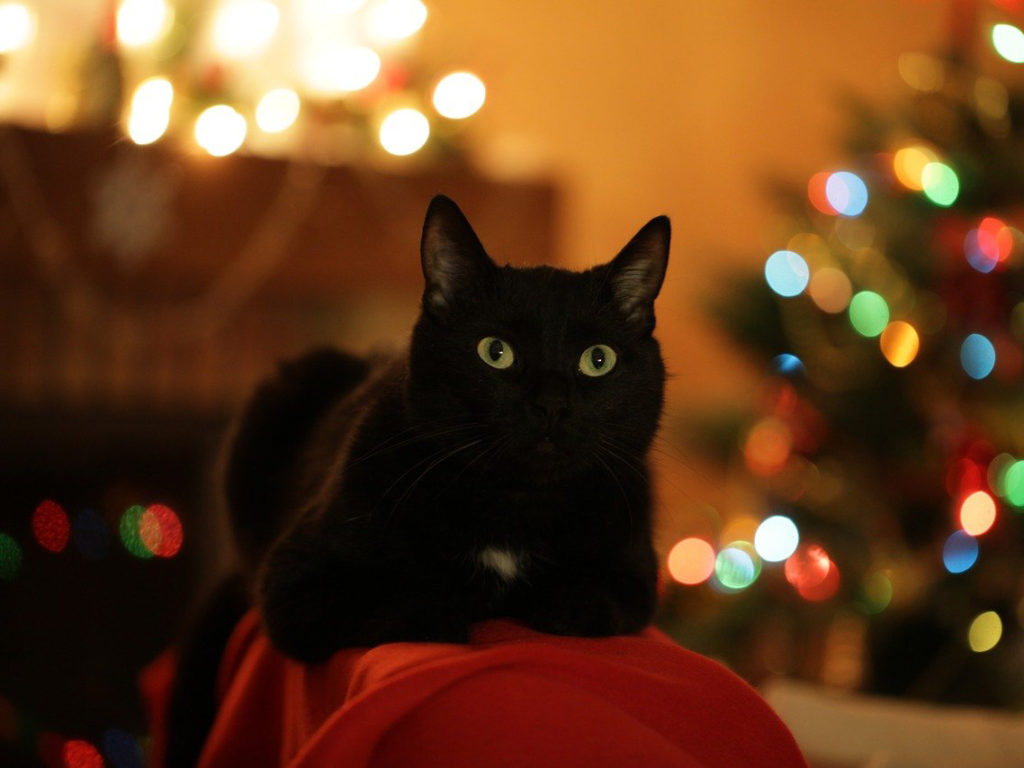Deck The Paws: Ensuring A Pet-Safe Holiday Home
The holiday season is a favorite time of year for many who transform their homes with festive decorations, bake winter treats, and open their doors to guests. Because these traditions introduce new variables into their furry friend’s environment, pet owners should be aware of any potential hazards that might arise.

Dr. Lori Teller, an associate professor in the Texas A&M College of Veterinary Medicine & Biomedical Sciences, says that owners adding a floral touch to their holiday decorations should be mindful of which plants they select. Lilies, European mistletoe, amaryllis bulbs, and pine needles can all cause serious health complications if consumed.
“In general, they can cause oral irritation and may cause your pet to salivate and drool. Excessive quantities can lead to gastrointestinal upset,” Teller said. “It is a myth that poinsettias are toxic to pets.”
Other holiday decorations pet owners should avoid include candles, which may burn pets or cause a serious fire if knocked over, and liquid potpourri, which is extremely toxic to cats. If your pet is a curious climber, consider anchoring your Christmas tree to a wall or ceiling to avoid falling and sharp broken ornaments.
When opening gifts, keep in mind that batteries are toxic to pets and should be kept out of reach. Any decorative elements containing string, such as ribbons or tinsel, may also cause an obstruction if ingested.
“Ornaments made from food, like popcorn balls, can also be a source of danger. Hang these ornaments well out of reach,” Teller said. “When putting presents under the tree or around the fireplace, make sure that any gift-wrapped food items are out of reach.”
Pets hunting for a holiday snack may also be at risk.
Chocolate, especially dark and baking chocolates; raisins; bones; alcohol; and fatty foods can all cause serious issues. Macadamia nuts can cause neurologic problems in pets as well. Anything that contains xylitol, an artificial sweetener found in many foods from gum to peanut butter, is toxic to dogs, leading to acute liver failure and death if not treated immediately.
“Normally, raw dough is a seasonal problem during the holidays, but this year there has been an exponential increase in the number of yeast and dough intoxications because so many people have been perfecting their baking skills during the pandemic,” Teller said. “Don’t stop baking your delicious goodies—just keep the raw versions away from your pets!”
Pet owners choosing to host a holiday gathering should be mindful of whether their animal enjoys company. Pets that prefer to keep to themselves should be confined to a quiet area of the home with a comfortable place to rest. Owners can leave on a radio or TV to help mask the noise from a party and provide a favorite toy.
If a pet is known to become excessively nervous when guests visit, owners can reach out to their veterinarian to discuss remedies that may alleviate anxiety. These may include pheromones or some medications. Some people may opt to board their pet at a kennel.
“If your pet enjoys a good get-together, make sure to keep it away from doors that are frequently opened so that you don’t have to worry about your pet getting loose in all of the excitement,” Teller said. “Just in case, make sure your pet is wearing a collar and identification tag and that it has a microchip that is registered with your current information in a microchip database. Advise guests not to slip treats to your pet as well.”
During the season of gratitude and family, many pet owners may wish to include all of their loved ones, human and animal, in their celebrations. Creating a pet-safe environment ensures that both owners and their furry friends can enjoy the holidays worry-free.
“Our pets have played a huge role in our lives, especially during the pandemic. Be sure you take some time to give them extra attention,” Teller said. “That will be the best gift of all.”
Pet Talk is a service of the College of Veterinary Medicine & Biomedical Sciences, Texas A&M University. Stories can be viewed on the web at vetmed.tamu.edu/news/pet-talk. Suggestions for future topics may be directed to editor@cvm.tamu.edu.


